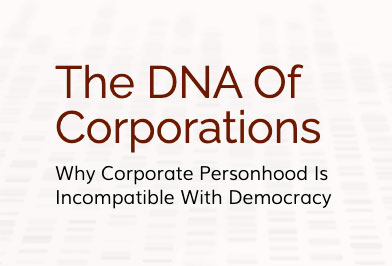Beam yourself back 37 years and imagine reading one of those predict- the-future magazine articles. The IBM PC and Commodore 64 had become popular home computers, and the first Apple Mac (then Macintosh) had appeared the year before.
The writer predicts that within a generation, those computers which had shrunk from the room-sized mainframes, to desktop PCs, to the contemporary version of the laptop (affectionately known at the time as “luggables”) would get smaller still, so that you could hold a computer in one hand or carry it in your pocket. They will have nice bright miniature TV screens, buttons, rechargeable batteries and be cheap enough to be available to everyone.
Super handy they will be. You can communicate with the outside world in all kinds of ways: order a pizza, call a cab, play music, even movies. It’s a pocket calculator, a flashlight, and you can play games. Compose and send little notes to your friends? Easy. Read the news or have it read to you? No problem. And to top it off, you can hold it to your ear and use it as a telephone. Heck, most people won’t even have regular phones any more. This little sucker will be all they need. The one thing the writer didn’t say is that you could browse the Internet because at the time, the Internet was barely a thing.
You are not entirely convinced of the plausibility of such a device, but are impressed by the writers imagination.
But the next part pisses you off. Being so useful and entertaining, the writer continues, people will become addicted to using their little gadgets. Folks will be playing with them non-stop, staring at the little screens and poking at them all day long, including while in line at the grocery store, eating dinner, playing cards or doing the laundry.
And worst of all, even while driving their cars. There they will become distracted, watching the little screen and playing with the device instead of paying attention to the road. Drivers will thus sometimes lose control, colliding with other vehicles, buildings and pedestrians with resulting death and destruction. This will happen frequently, with tragic news becoming normal.
You jump up and throw your magazine across the room. What ridiculous bullshit! Nobody would be stupid enough to do that. And if they did they’d be locked up. How do people get paid to write this crap?
But the writer is no less than a modern day Nostradamus. As we all now know, a prediction as described above would be 100% accurate. Those miniature computers, known as Smart Phones, have indeed appeared on the scene, and people use them everywhere, including in the car, where texting and driving don’t mix. Check out “From One Second to the Next” on YouTube by award-winning director Werner Herzog. There you can meet some of the participants in a few of those sad events. This is only one of many such hard-to-watch videos.
In a society where leaders and the citizens who choose them are thoughtful and clear-headed, such behavior would be immediately curtailed. Laws and the enforcement of them would be strict and sure. Instead, we do in fact have laws, at least in some localities, intended to limit vehicle cell phone use, but such laws are routinely ignored by citizens, seldom enforced by the police, and punishment, when it occurs, is only slightly more severe than unnoticeable.
But some countries got the memo. Americans might consider imitating friends in Ireland where the fine for texting while driving is 1000 Euros, or in Cape Town, South Africa, where cops can confiscate your phone if they catch you in the act.
Why is it so difficult to implement obvious common-sense restrictions on this dangerous behavior? It is because we live in a corporate state, defined thus:
The Corporate State is a system of government, nominally a democracy, whose executive, legislative, judicial and regulatory decision-making is conducted for the benefit of for-profit corporations through the influence of money.
As you might have guessed by observing your fellow travelers, much cell phone communication occurs in moving vehicles. Companies enriched by this behavior lobby against constraints on such usage. Its not that they want people to die in car crashes, its just that when they do, Providers aren’t liable for damages, and since no expense is incurred, it doesn’t enter into the calculation. There is no column in the spread-sheet for “dead commuters”.
This is normal behavior for big companies. Whenever they see a law or regulation either already on the books, or under consideration, that would affect its bottom line, they have effective methods of resistance.
This includes lobbying congress, and donating money strategically to individual lawmakers. Companies advertise their virtues and the truth of their policy positions. They establish so-called Think Tanks, tasked with providing academic credibility to those positions. They will endow chairs at universities to the same end, and sponsor ballot initiatives. They might even ghost write legislation, saving our representatives the trouble.
Corporations, prevented by statute from engaging in politics in the early days of our country, now do so freely. Vast wealth enables them to manipulate the economy for their own ends, at the expense of public safety, as the example above illustrates.
In response there is a proposed constitutional amendment stating that only actual human beings are “persons” in the eyes of the law, and that money is not equivalent to free speech. For those who would read the minds of the Founders, this might be closer to their original vision. There is a grass-roots organization promoting the “We the people amendment.” More details at http://www.movetoamend.org
